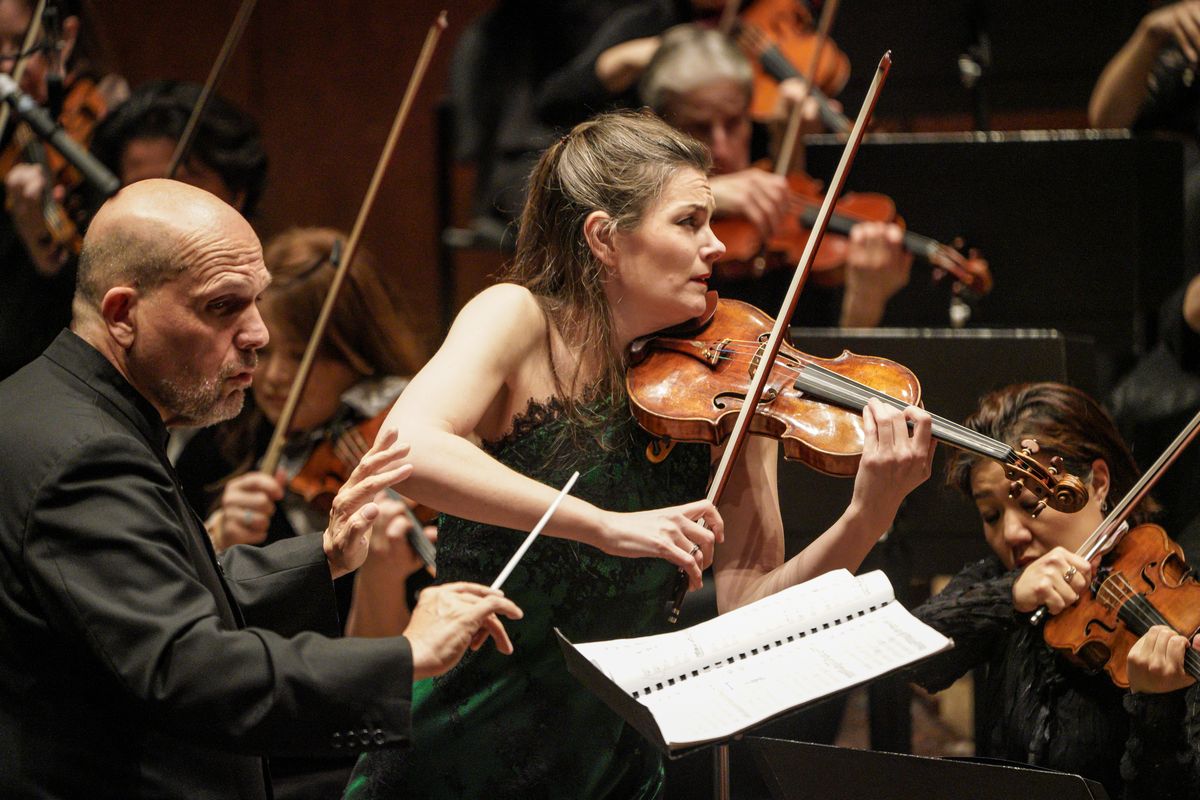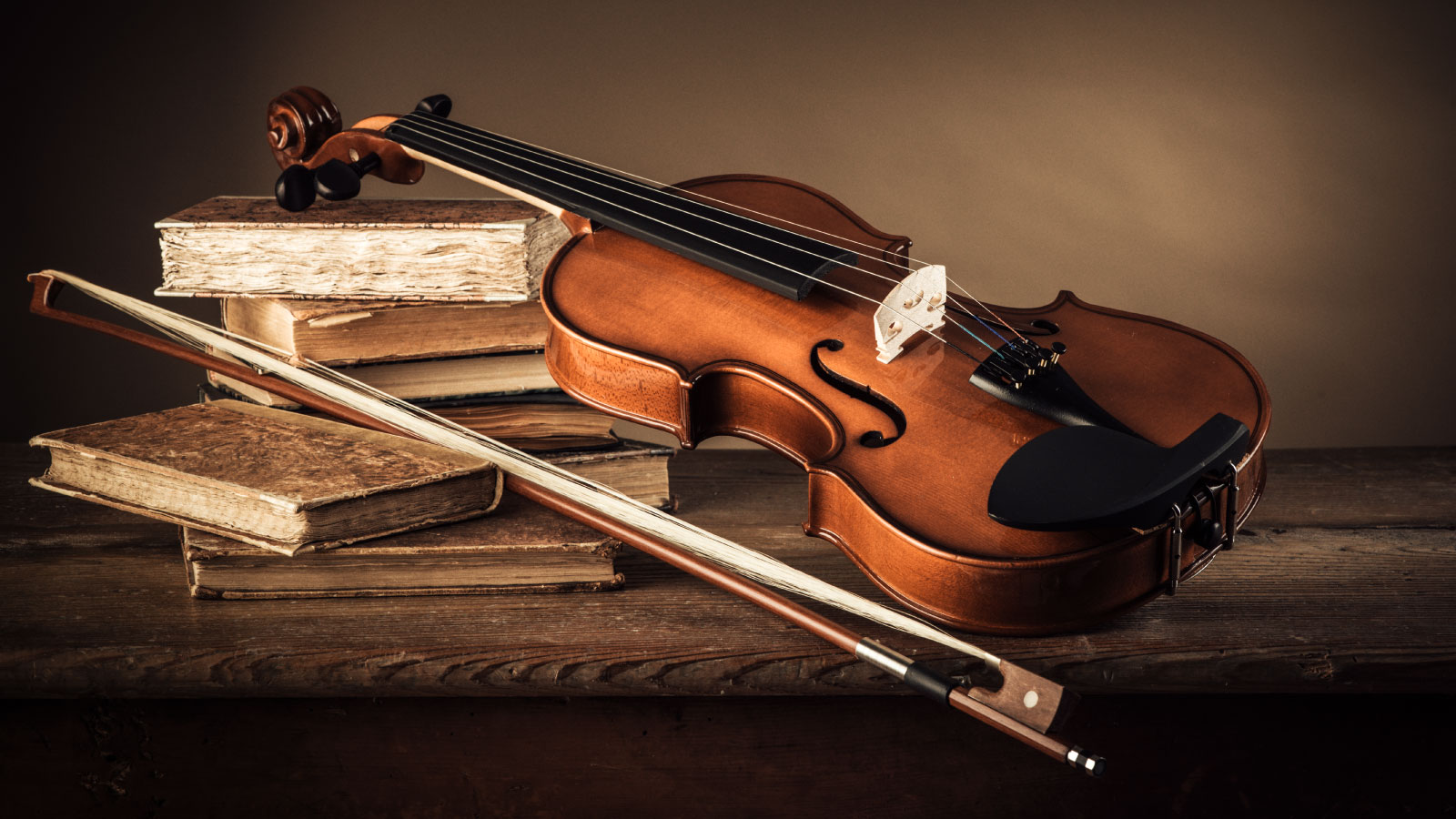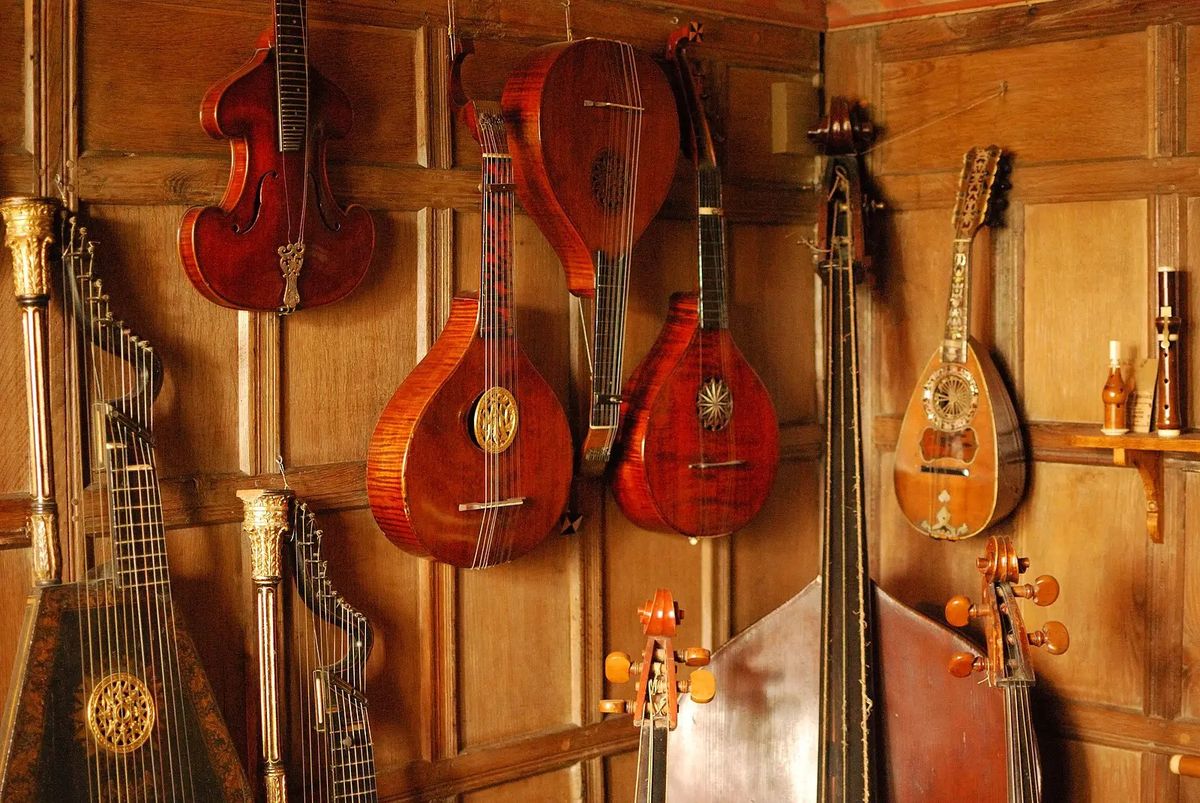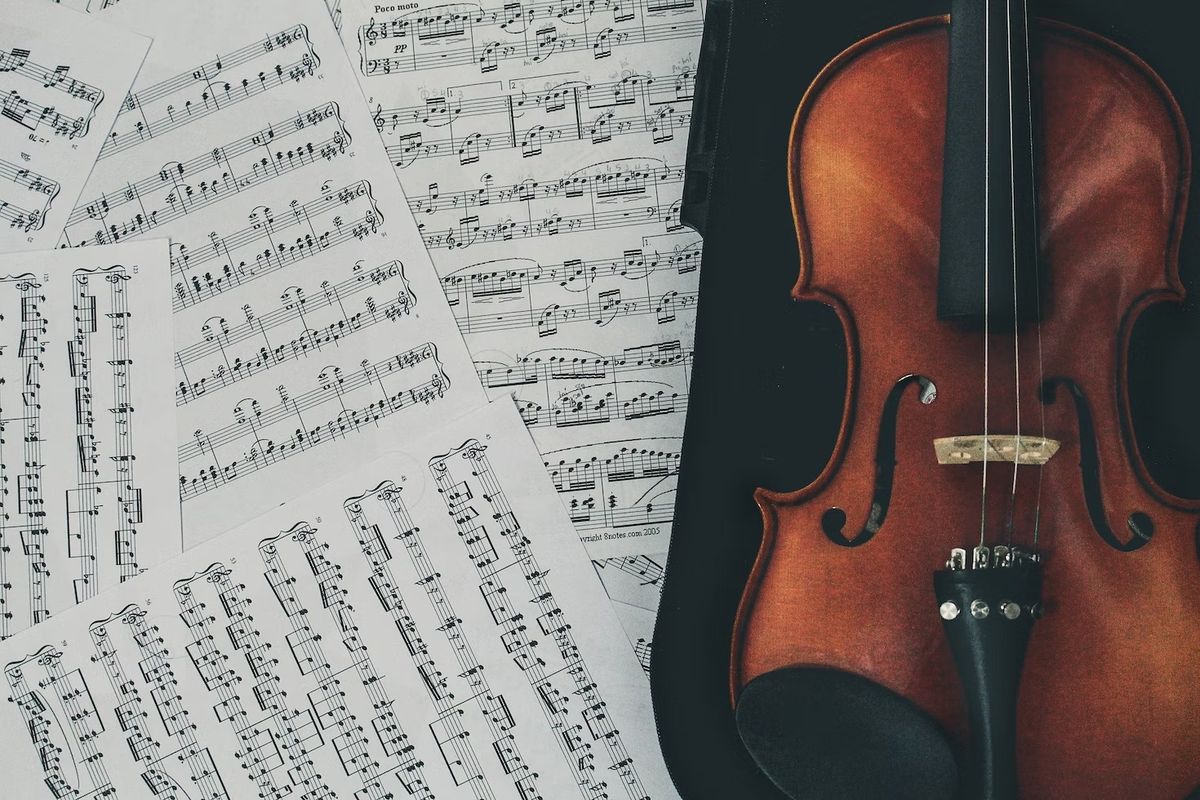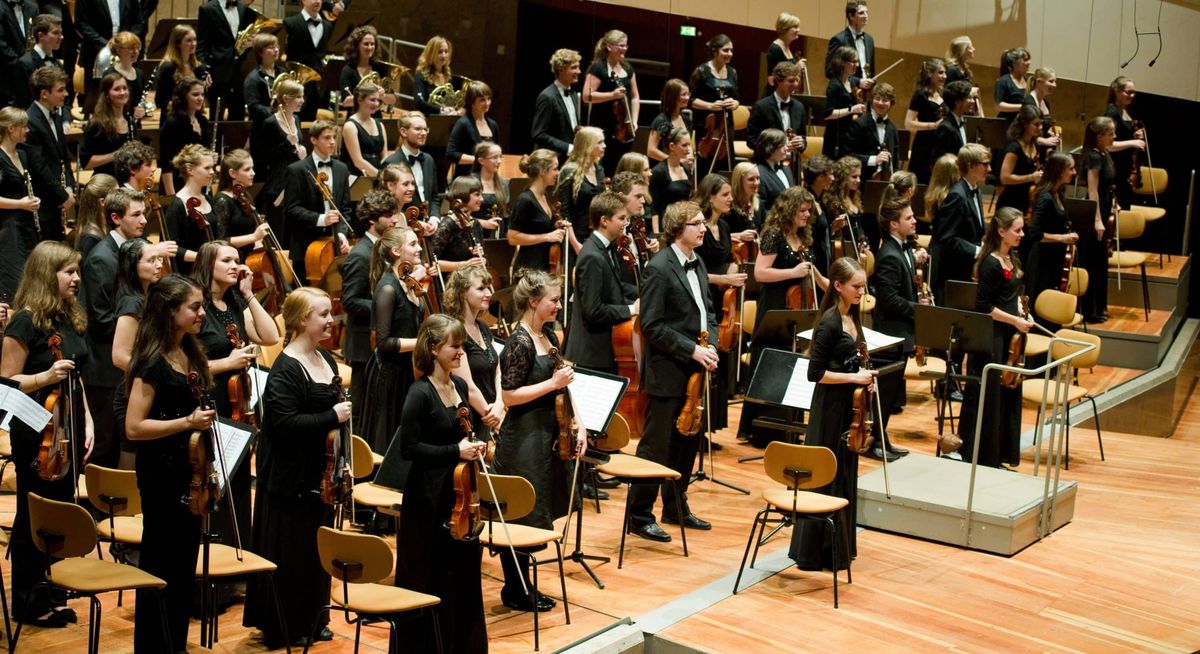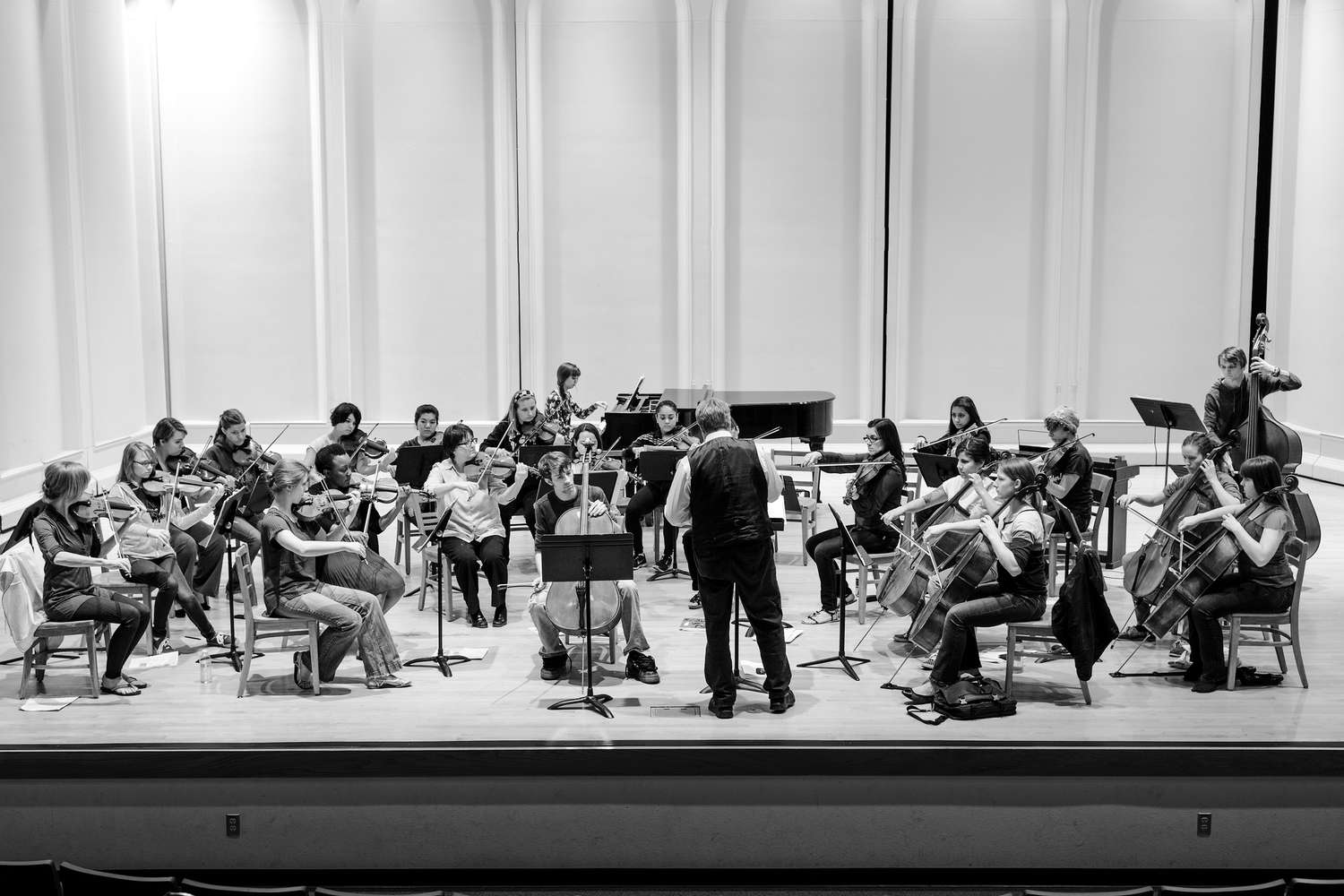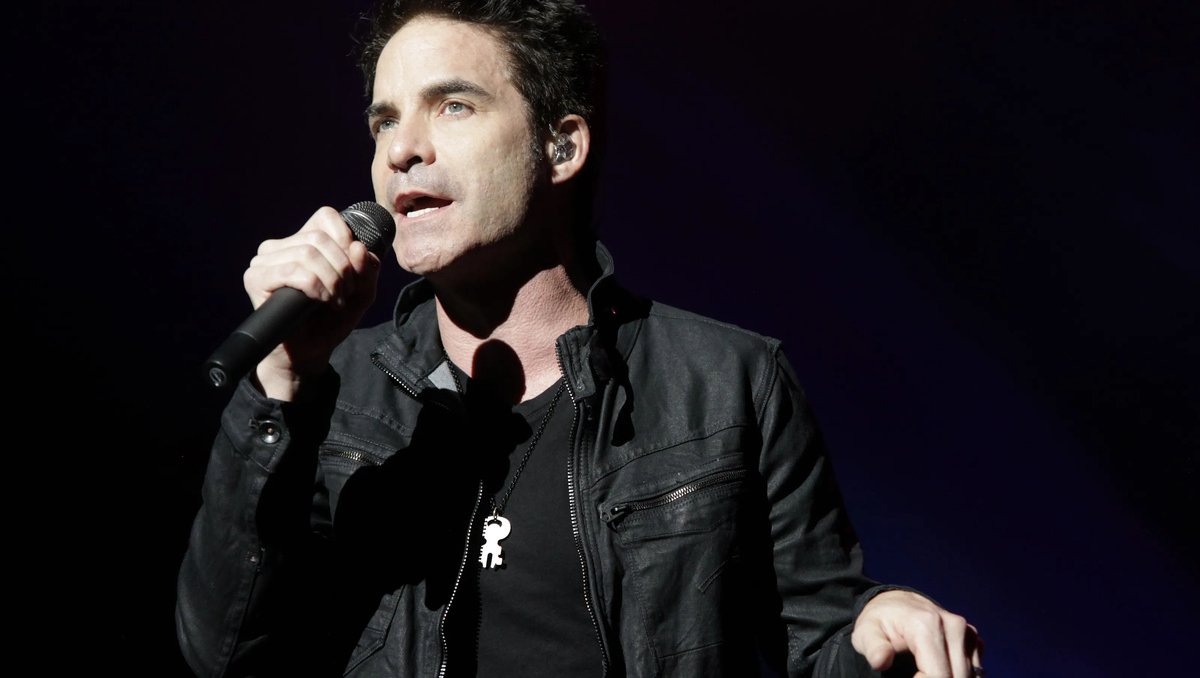Home>Production & Technology>Musician>What Is A Classically Trained Musician


Musician
What Is A Classically Trained Musician
Modified: February 1, 2024
Discover the definition and significance of a classically trained musician. Explore the skills, techniques, and expertise required to excel as a musician in various genres.
(Many of the links in this article redirect to a specific reviewed product. Your purchase of these products through affiliate links helps to generate commission for AudioLover.com, at no extra cost. Learn more)
Table of Contents
Introduction
Classical music is a genre that spans centuries and has a rich tradition. Within this genre, there is a subset of musicians known as classically trained musicians. These musicians have undergone extensive training in order to master their craft and perform at the highest level.
A classically trained musician is someone who has dedicated years to studying and honing their skills in the classical music tradition. They have undergone rigorous training and education, studying both the theory and practice of music. Whether they are instrumentalists or vocalists, these musicians have developed a deep understanding of musical technique, interpretation, and expression.
The world of classical music is not limited to orchestras and concert halls. It encompasses a wide range of musical styles and traditions, including chamber music, opera, solo performances, and more. Classically trained musicians have the ability to perform in a variety of settings and collaborate with other artists to create beautiful and compelling musical experiences.
In this article, we will explore what it means to be a classically trained musician, delve into the training and education they receive, discuss the challenges they face, and highlight the benefits of having a classical music background. Whether you are a music enthusiast or aspiring musician yourself, this article will provide you with valuable insights into the world of classically trained musicians.
Definition of a Classically Trained Musician
A classically trained musician is an individual who has received formal education and extensive training in the techniques, theory, and performance of classical music. They possess a deep understanding and appreciation for the traditions, repertoire, and nuances of this particular genre.
Classical musicians often begin their training at a young age, often starting with private lessons on an instrument such as piano, violin, or cello. They may also participate in school or community music programs and take part in various ensembles, such as orchestras or choirs.
As their musical journey progresses, classically trained musicians typically pursue specialized education from prestigious music conservatories, universities, or colleges. They study a wide range of subjects, including music theory, ear training, music history, composition, and performance techniques specific to their chosen instrument or voice.
One defining aspect of being a classically trained musician is the emphasis on mastering the classical music repertoire. This includes works composed by the great masters of classical music, such as Bach, Mozart, Beethoven, and Chopin. These musicians immerse themselves in the study and performance of these timeless compositions, aiming to interpret and convey the composer’s intentions with precision and artistry.
Classically trained musicians are also well-versed in the technical aspects of music performance. They dedicate countless hours to developing their instrumental or vocal technique, focusing on aspects such as tone production, articulation, phrasing, and dynamics. This meticulous approach allows them to deliver expressive and emotive performances that capture the essence of the music.
Moreover, classically trained musicians often have a strong foundation in music theory, enabling them to analyze and understand the structure and form of the music they perform. This knowledge grants them the ability to delve deeper into the composition, bringing out subtleties and expressing the intended emotions within the music.
In summary, classically trained musicians are individuals who have undergone extensive education and training to develop their technical skills, musicality, and understanding of the classical music genre. They possess a deep appreciation for the rich traditions and timeless works of classical music, and their dedication allows them to deliver captivating performances that evoke a range of emotions in their listeners.
Musical Training and Education
The journey of becoming a classically trained musician involves rigorous training and formal education in both music theory and practical skills. The process typically begins at a young age, with aspiring musicians starting their musical education through private lessons or participation in school music programs.
Formal education for classically trained musicians often includes enrollment in prestigious music conservatories, university music departments, or specialized music schools. These institutions provide a comprehensive curriculum that covers a wide range of musical subjects.
One fundamental aspect of musical training for classically trained musicians is music theory. This encompasses the study of notation, scales, chords, harmony, rhythm, and other fundamental elements of music. Understanding music theory is vital for interpreting and performing classical works accurately and expressively.
Ear training is another significant component of a classically trained musician’s education. Through exercises and practice, musicians develop their ability to recognize and reproduce musical intervals, melodies, harmonies, and rhythms by ear. This skill is crucial for accurately interpreting and performing complex classical compositions.
Practical training and proficiency on their chosen instrument or voice are central to the development of classically trained musicians. They dedicate countless hours to practicing scales, technical exercises, and etudes to build their technical facility, dexterity, and control. This training allows them to tackle the demanding and intricate passages found in classical music.
In addition to individual practice, classically trained musicians often participate in ensemble work to enhance their musical skills. They may perform with orchestras, chamber groups, or choirs, learning the importance of collaboration and achieving a cohesive performance with other musicians.
Throughout their education, classically trained musicians study the works of the great composers and delve into the history of classical music. They learn about different musical eras and styles, gaining valuable insight into the evolution and context of classical music compositions.
Furthermore, classically trained musicians often have opportunities for performance and recitals as part of their education. These performances serve as milestones to showcase their progress and allow them to develop their stage presence and communication with an audience.
The combination of theoretical knowledge, technical proficiency, practical training, and performance experience equips classically trained musicians with the necessary skills to perform classical music at a high level. Their education provides a solid foundation for their artistic expression and paves the way for a successful career in the world of classical music.
Study of Classical Repertoire
One of the defining aspects of being a classically trained musician is the in-depth study and exploration of the classical repertoire. This entails a comprehensive understanding of the works composed by great masters throughout history and the ability to perform them with artistic interpretation and technical proficiency.
Classical musicians spend a significant amount of time delving into the works of renowned composers such as Bach, Mozart, Beethoven, Chopin, and many others. They analyze the structure, form, harmonic progression, and melodic intricacies of these compositions to grasp the essence and intended expression of the music.
The study of classical repertoire involves not only playing or singing the music but also understanding the historical and cultural context in which it was composed. Musicians delve into the composer’s life, influences, and musical style to gain a deeper understanding of their works. This research helps musicians deliver authentic performances that align with the composer’s intentions.
Classically trained musicians often develop specialization in specific composers or periods of classical music. They may focus on the Baroque, Classical, Romantic, or even Contemporary periods, immersing themselves in the unique characteristics and techniques of each era.
In addition to solo works, classically trained musicians also study and perform chamber music and orchestral compositions. They learn the art of collaborating with other musicians, listening intently, and blending their sound to create a harmonious ensemble.
Through diligent study and practice, classically trained musicians become intimately familiar with a wide range of repertoire. They develop the ability to bring out the subtleties, phrasing, and emotionally expressive qualities within the music, captivating audiences with their interpretations.
The study of classical repertoire is a lifelong journey for classically trained musicians. Even after years of practice and performance, there is always more to learn and discover within the vast realm of classical music. It is through this continual exploration and growth that musicians cultivate their authenticity and artistic voice within the classical music tradition.
Technical Proficiency and Musicality
Classically trained musicians not only possess a high level of technical proficiency on their chosen instrument or voice but also strive to cultivate a refined sense of musicality. These two aspects of musicianship work hand in hand to create captivating and expressive performances.
Technical proficiency is the foundation of a classically trained musician’s skillset. Through years of dedicated practice, musicians develop a strong grasp of their instrument’s technical demands, including finger dexterity, agility, breath control, or vocal range. They work on scales, arpeggios, and complex exercises to improve their technical facility.
A classically trained musician’s technical proficiency extends beyond mere proficiency in executing notes and passages accurately. It encompasses aspects such as tone production, articulation, dynamics, and control. They work meticulously to achieve a rich, beautiful tone that is appropriate for the music they are performing. They master the techniques required to articulate notes clearly, fluidly transition between different playing styles, and use dynamics to imbue the music with emotion and expressiveness.
However, technical proficiency alone is not enough to make a performance compelling. It is the musician’s musicality that breathes life and emotion into the music. Musicality refers to the ability to interpret and express the music’s artistic intentions and emotions effectively.
A classically trained musician’s musicality is shaped by their deep understanding and study of the composition they are performing. They analyze the structure, harmony, and phrasing of the music to bring out its inherent expressiveness. They make interpretive choices regarding tempo, dynamics, and nuance to convey the composer’s intentions and communicate their own artistic voice.
Musicality also involves an acute sense of listening and responding to the music in the moment. Classically trained musicians remain attentive to the ensemble or accompaniment, adjusting their timing and phrasing to maintain balance and musical coherence.
Technical proficiency and musicality are intertwined aspects of musicianship. The technical foundation allows classically trained musicians to navigate the complexities of the music, while musicality enables them to connect emotionally with the audience and deliver performances that evoke a range of emotions.
Striking a balance between technical precision and musical interpretation is an ongoing challenge for classically trained musicians. They constantly refine their technical skills while integrating their personal artistic expression into each performance. The result is a captivating and engaging musical experience for both the musician and the audience.
Performance Opportunities and Venues
Classically trained musicians have a diverse range of performance opportunities and venues available to showcase their talents. From intimate recitals to grand concert halls, these musicians have the chance to captivate audiences with their skill and artistry.
One of the most common performance opportunities for classically trained musicians is solo recitals. These recitals allow musicians to demonstrate their technical proficiency and musicality through a carefully curated program of solo pieces. Solo recitals provide a platform for musicians to showcase their interpretive abilities and establish their artistic voice.
Classically trained musicians also have the opportunity to collaborate with other musicians in chamber ensembles. Chamber music allows for a more intimate and interactive musical experience, where musicians work together to perform works written for small groups of instruments. It is an opportunity to develop communication and ensemble skills while exploring a diverse repertoire.
Orchestral performances are another significant avenue for classically trained musicians. They can audition and secure positions in professional orchestras or participate in youth or community orchestras. Playing in an orchestra allows musicians to perform grand symphonies and concertos, experiencing the power of collective musical expression.
Opera houses provide classically trained singers with the opportunity to showcase their vocal talents in dramatic productions. Singers can take on leading roles, delivering captivating performances through their vocal technique, interpretation, and stage presence. Opera houses also offer opportunities for collaboration with professional orchestras and conductors.
Classical musicians can also explore contemporary music by working with composers and performing new compositions. This provides a chance to contribute to the evolution of classical music and engage with audiences in innovative and thought-provoking ways.
When it comes to performance venues, classically trained musicians have access to a wide range of settings. Concert halls, such as Carnegie Hall, the Berlin Philharmonie, or the Sydney Opera House, offer iconic and acoustically exceptional spaces for musicians to perform in front of large audiences.
In addition to concert halls, musicians may perform in smaller, more intimate venues such as churches, art galleries, or even private homes. These settings create a more intimate and close-knit atmosphere, allowing for a unique connection between the musician and the audience.
Classically trained musicians also have the opportunity to perform in festivals and competitions, both national and international. These events provide exposure to a broader audience and allow musicians to compete and receive valuable feedback from esteemed judges and fellow musicians.
With the advent of technology and the rise of digital platforms, classically trained musicians can also explore online performance opportunities. They can share their talents through live streams, record and release albums, and connect with a global audience through social media and online platforms.
Overall, classically trained musicians have a wealth of performance opportunities and venues available to showcase their skills and artistic expression. From traditional concert halls to innovative digital platforms, these musicians have the chance to create captivating musical experiences for audiences around the world.
Challenges Faced by Classically Trained Musicians
While the journey of becoming a classically trained musician is rewarding, it also comes with its fair share of challenges. From intense competition to the demands of a musician’s lifestyle, classically trained musicians face various obstacles on their path to success.
One of the significant challenges is the highly competitive nature of the classical music industry. There are countless talented musicians competing for limited performance opportunities, positions in orchestras, or recording contracts. Standing out and securing opportunities requires exceptional skill, dedication, and perseverance.
Classically trained musicians must also balance their rigorous practice schedules and performance commitments with other aspects of their lives. They often face long and irregular working hours, juggling rehearsals, performances, and travel. This lifestyle can be physically and mentally demanding, requiring strong discipline and time management skills.
Financial stability is another challenge that classically trained musicians often face. Securing steady employment in the field can be challenging, especially for those starting their careers. Many musicians rely on freelance work, facing the uncertainty of gig-to-gig and the need to constantly seek out performance opportunities.
Maintaining physical and mental well-being is crucial for musicians, as their bodies are their instruments. The repetitive nature of practice and performance can lead to physical strain and the risk of injury. Additionally, the pressures of the industry can contribute to stress, anxiety, and self-doubt, requiring musicians to prioritize self-care and seek support when needed.
Adapting to the ever-evolving digital landscape and utilizing online platforms can also pose challenges for classically trained musicians. Navigating social media, building an online presence, and connecting with audiences in a saturated digital space requires both technical knowledge and marketing savvy.
Another challenge is the need to continually grow and evolve as artists. Classically trained musicians must strive for artistic excellence, constantly refining their skills, and exploring new repertoire. They need to balance tradition and innovation, finding ways to breathe new life into classical masterpieces while embracing contemporary compositions.
Despite these challenges, classically trained musicians are resilient and passionate about their craft. They find inspiration in the beauty of music and the joy of sharing their art with audiences. With determination, perseverance, and a commitment to their artistic vision, they navigate these hurdles, carving a fulfilling and successful career in the world of classical music.
Benefits of Being a Classically Trained Musician
Becoming a classically trained musician offers a multitude of benefits, both personally and professionally. The years of dedicated practice and study bring forth rewards that extend beyond the realm of music itself.
One of the significant benefits of being a classically trained musician is the acquisition of valuable skills and discipline. The rigorous training and practice required in mastering an instrument or voice instill qualities such as perseverance, dedication, and a strong work ethic. These traits are transferable to various aspects of life, fostering resilience and a commitment to excellence in any pursuit.
Classically trained musicians also develop exceptional listening and communication skills. They learn to closely listen and respond to fellow musicians within an ensemble, creating a harmonious performance. This ability to actively listen and engage with others is applicable in collaborative work settings and enhances interpersonal communication skills.
Music is a form of self-expression and emotional connection. As classically trained musicians deepen their understanding of the music they perform, they develop a heightened sense of self-awareness and emotional intelligence. They learn to channel their emotions through their art, bringing depth, nuance, and a unique perspective to their performances.
The study of classical music history and theory provides classically trained musicians with a broad cultural and historical knowledge. They become well-versed in the contributions and legacies of great composers and their impact on society. This deep understanding of the arts and history enriches their overall perspective and appreciation of the world.
Being a classically trained musician also opens doors to numerous career opportunities. While performance remains a primary avenue, musicians can explore teaching, conducting, composing, music production, music therapy, and arts administration. They can work in a variety of settings, including schools, concert halls, recording studios, and arts organizations.
Moreover, the joy and fulfillment of connecting with audiences through music are unparalleled. The ability to move, inspire, and uplift listeners through a performance is a deeply rewarding experience. Classically trained musicians have the privilege of sharing their love and passion for music with others, creating lasting memories and emotional connections.
Finally, the classical music tradition itself is a treasure trove of timeless compositions that evoke a range of emotions and reflect the depth of human experience. Immersing oneself in this world allows classically trained musicians to become a part of something greater than themselves, connecting with a rich cultural heritage that has endured for centuries.
In summary, the benefits of being a classically trained musician extend beyond technical skills and musical expression. They include personal growth, transferable skills, cultural enrichment, diverse career opportunities, and the immeasurable joy of sharing the transformative power of music. Classically trained musicians are imbued with a lifelong passion for their craft, allowing them to make a lasting impact in both their own lives and the lives of others.
Conclusion
Being a classically trained musician is a journey that requires unwavering dedication, countless hours of practice, and a deep love for the art of music. It is a path filled with challenges and rewards, shaping individuals into skilled performers and passionate interpreters of the classical repertoire.
Throughout this article, we have explored the definition of a classically trained musician and delved into their musical training and education. We have discussed the study of classical repertoire, the importance of technical proficiency and musicality, and the wide array of performance opportunities and venues available to classically trained musicians.
We have also acknowledged the challenges that these musicians face, from the highly competitive nature of the industry to the demands of their lifestyle. However, despite these obstacles, the benefits of being a classically trained musician are numerous and far-reaching.
From the acquisition of valuable skills and discipline to the deep emotional connection and self-expression that music offers, classically trained musicians find personal and professional fulfillment through their craft. They embrace a lifelong journey of growth, constantly refining their skills, exploring new repertoire, and connecting with audiences on a profound level.
Classically trained musicians possess the ability to transport listeners to different emotional landscapes, to inspire and uplift, and to evoke a range of emotions through their performances. They contribute to the preservation and evolution of a rich musical tradition that spans centuries, leaving a lasting impact on the cultural fabric of society.
Whether performing in grand concert halls, intimate venues, or engaging with global audiences through digital platforms, classically trained musicians have the power to touch lives and evoke a deep appreciation for the beauty and power of music.
In conclusion, being a classically trained musician is a rewarding pursuit that goes beyond the mastery of an instrument or voice. It is a lifelong commitment to artistic excellence, personal growth, and the ability to create immersive and transformative experiences through the universal language of music.

